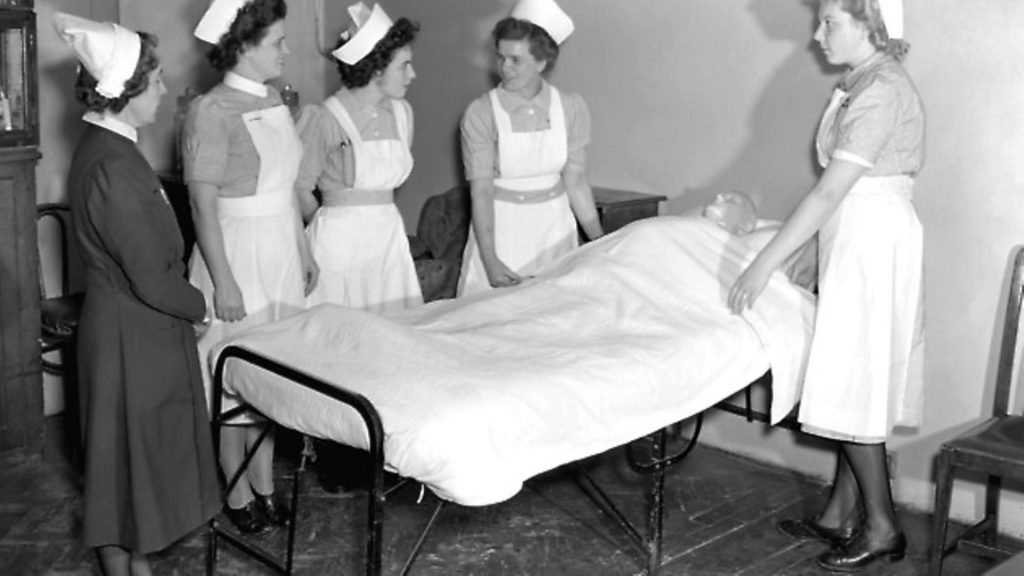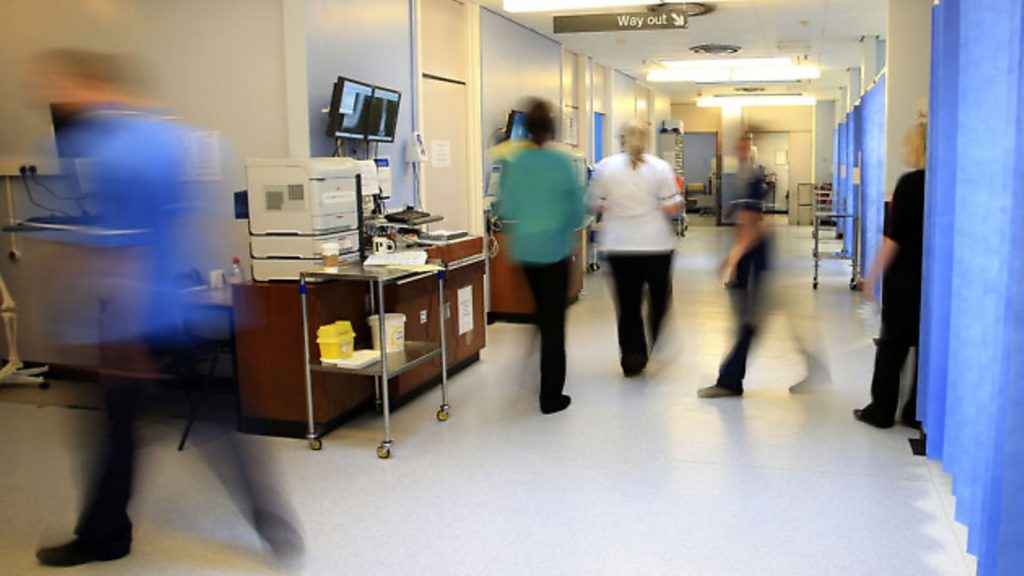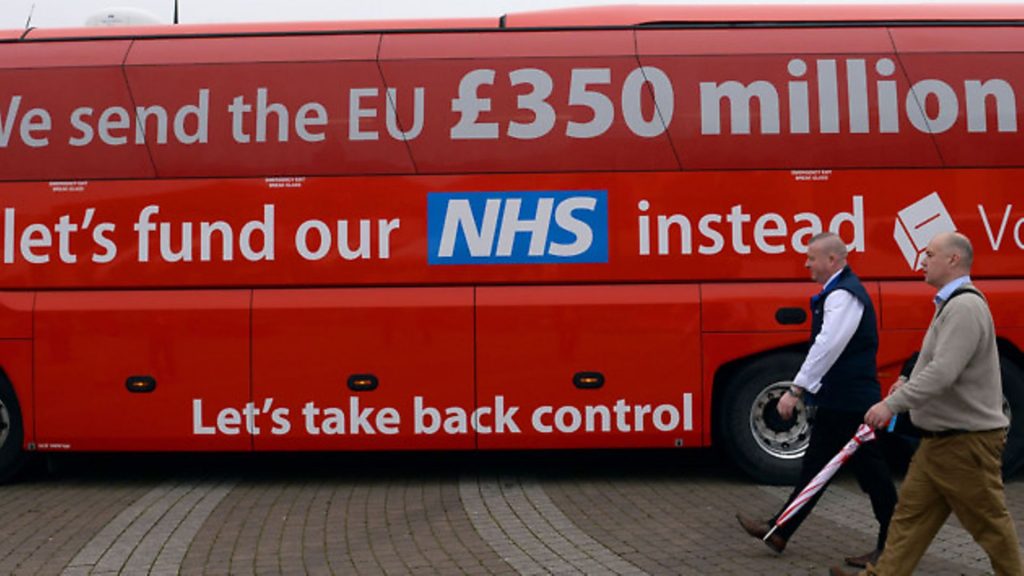
Such is the position of our cherished health service, at the heart of British life, that the most famous claim of the entire referendum campaign related to the NHS.

It was emblazoned on that damned bus, the suggestion that £350million a week could be diverted to the health service if we would only vote for Brexit.
Sufficient numbers fell for it. But, as others have already argued elsewhere, that extra ‘funding’ was a mirage. It never existed and will not be coming our way.
Instead, what Brexit has achieved, is to push the NHS even further along its seemingly terminal decline. And, as with most things Brexit-related, this was all too obvious beforehand.
No-one takes much notice of experts, least of all politicians, but all the doctors I spoke to before (and after) the vote were in favour of staying in the EU. Not one prominent national medical, research, or health organisation sided with Brexit.
This was partly because of the fantasy arguments of the Vote Leave camp – perfectly encapsulated with that bus – and partly because, on balance, doctors and scientists overwhelmingly believe the UK is better off, healthier and safer in Europe.
Why? Where do you start?

The very best guess of the net saving of withdrawing from Europe, if – and it is a big if – there was no pursuant economic crash, is £27m a week. But even if every penny was spent on the NHS, it wouldn’t even wipe out the current deficit. If, as seems rather more likely, there is an economic crash, it would wipe out any saving and make the NHS funding crisis even worse.
The health service faces many threats, but the European Union was not a prominent one: Article 168 of the Lisbon Treaty clearly states that the organisation and delivery of health services is a national responsibility.
A far greater peril lies in the current UK government’s creeping privatisation and outsourcing of vital services. A lurch to the right from Brexit is likely to accelerate this.
Indeed, national health services were not included in the EU’s proposed trans-Atlantic trade and investment partnership trade deal (TTIP), with the Cameron government stating it had no intention to broaden the scope of the deal to include the NHS at any point in the future.
The change of leadership and personnel in the Tory party, post-Brexit, could well signal a change of intention and a new trade partnership with the US, with a ‘privatise the world’ agenda that further opens up a £130billion NHS market to American buyers.
Certainly, Liam Fox, the international trade secretary and noted Atlanticist, is not a doctor I trust with the best interests of the NHS. During the referendum, his Vote Leave colleagues also made play of the impact of immigration on the NHS. And yet our public services are heavily reliant on EU migrants. There are 135,000 non-British European citizens working in the NHS and social care, about 10% of the total, at all levels of the service from consultants to carers. If a significant number leave because they have to, or are made to feel unwelcome, our services would collapse. Health secretary Jeremy Hunt’s recent conference grandstanding to make the NHS ‘self-sufficient’ in staff was particularly unwise.

Medical research too is heavily reliant on European collaboration. To date, the UK has been the most successful country at winning EU funding for research and development in life sciences. After Brexit, the UK will have to pay to keep access to funding and key research organisations but have no influence in setting priorities in research and development.
These implications lie further ahead, but others will be felt sooner. Indeed, the writing seems to already be on the wall: estimates from management consultants suggest that, with half the products used in the NHS coming from outside the UK and with the health service buying those items in sterling, it faces an extra £900m bill from suppliers, as they hike their prices to protect themselves against a weakening pound. This is the last thing we need.
Already, it has been reported that Simon Stevens – CEO of NHS England – has been told by Theresa May that the health service will get no extra money in the Autumn Statement, despite widespread reports of hospitals and general practices close to breaking point.
The NHS has been here before, most recently in 2000 before Tony Blair decided to match average European spending levels for the NHS. But the difference now is that the Tory government has no intention of making any such pledge. Like the American right, it seems to see the NHS as a cheap service for the poor, while everyone else should be working hard enough to afford private insurance and care.
As services are cut and referrals delayed, it will end in disaster for some. The people most harmed by austerity are unlikely to vote Conservative, but NHS failure headlines are never good for governments.
The key questions are whether such failures can be covered up, as they have been in the past, and whether blame will be devolved to Stevens to pass on to NHS managers and frontline staff.

Stevens was recently voted the most powerful person in the NHS, ahead even of Hunt, by the Health Service Journal. If the government is wilfully deaf to the whistleblowing of Stevens, it’s unlikely that the myriad of excellent campaigns to sustain the NHS as a properly-funded public service will make a difference.
The NHS needs far more than money –sufficient numbers of highly-trained and motivated staff can’t just be plucked from trees – but without the money to recruit, train and retain staff for the 50,000 vacant posts (and rising), the NHS simply can’t cope safely with the demands placed on it.
Of course, this was an argument made by some of those pressing the case for Brexit, although they like to talk less about it now.
A case was made that migration was heaping pressure on the health service. The position is more complex, though. Yes, the strain in some areas is undeniable. However, EU migrants tend to be of working age, use the NHS less and pay taxes to fund it.
The failures in NHS provision come from poor capacity and workforce planning, not because EU migrants aren’t paying taxes. Some even return home for healthcare because they can get quicker access to specialists than in the UK.
Will whatever form our immigration policy ultimately takes mean less pressure on the NHS? Who knows? How many of the two million British people living in other EU countries – including about 650,000 British pensioners – will return home for health reasons, as they lose eligibility for EU citizen health services? Again, who knows?
What is clear is that demands on the NHS are rising, as our social care system has also been defunded to the point of collapse.
As a consultant who works in an emergency department told me: ‘Most of our patients are old or very old. Many of them are very sick and need to be in hospital. The problem is, we can’t get them out again.’
The current crisis in the NHS was an entirely predictable consequence of the austerity programme combined with the stupidity of the 2011 Health and Social Care Act.
When an organisation is ordered to make massive efficiency savings (£22bn in five years), a wise government would have kept the same organisational structure, kept the best of the senior managers in place and relentlessly focused on improving quality and safety, funding and supporting the frontline, while cutting waste through collaboration in a system everyone understood.
Instead, David Cameron allowed then health secretary Andrew Lansley to unleash his extraordinarily complex vanity project that accelerated the competitive market Tony Blair had introduced, and the capacity of NHS hospitals to do private work and private organisations to take on NHS work, even entire services.
The organisational chaos that has ensued with a competitive market where services are put out to tender – and lawyers and management consultants take a large slice of public money that would be better spent on patients – should not be underestimated.
Indeed, Lansley’s claims that the NHS would become less bureaucratic after he’d butchered it are laughable. Competition is fine for selling widgets, but healthcare is complex and heavily reliant on collaboration, in a system free from the myriad conflicts of interest of the market.
Some doctors, managers and politicians have financial stakes in private companies and services that they are promoting. So-called Sustainability and Transformation Plans have now been written in secret for every NHS region to ration services and promote privatisation. The government’s trite promise to patients of ‘no decision about you, without you’ sounds all the more cynical.
Not all of this is entirely the fault of Brexit, the current government or even the last one – the die was cast by Margaret Thatcher’s introduction of an internal market in the NHS, with its purchaser-provider split. The pursuit of profit was rapidly accelerated by Tony Blair, whose special adviser, a young Stevens, decided the NHS needed the ‘constructive discomfort of market competition’.
The language in the NHS changed along with its values. No longer were we treating people according to need, but chasing targets and money.
Back in 2008, a consultant psychiatrist friend decided that instead of slating politicians and managers, he should step up and help lead his hospital. So he applied for the job as clinical director. The job description astonished and demotivated him immediately; ‘The core purpose of your role is to drive the business development strategy, in line with the Business Proposition, scanning the mental health environment for new opportunities and identifying and stimulating new business solutions that fit with the corporate vision.’
Such job descriptions are now commonplace in the NHS, but it’s worth remembering that the rebranding of the NHS as a profit-seeking business started under Blair.
Stevens knows this, as he was part of the rebranding. He left the NHS to work as an executive vice president for global health giant UnitedHealth, but returned when Sir David Nicholson vacated the top NHS job in England after the Mid Staffs hospital scandal. That scandal was largely caused by a hospital in debt and in denial about the appalling clinical care it was providing, while kissing up to the top of the NHS and ignoring the voices of patients, carers and the few staff who were brave enough to blow the whistle.
This situation is now being replicated around the NHS, most recently by 54,000 junior doctors who are shouting loudly that there aren’t enough of them to safely staff hospitals for five-day routine care and round-the-clock emergency care, and so the government’s manifesto pledge of ‘a truly seven day NHS’ – whatever that means – is unworkable and unsafe without more staff.
Hunt appears to have beaten the junior doctors and their chaotic and conflicted union, but was bounced into announcing a large increase in medical school numbers which – if it ever materialises – will fill some of the gaps in ten years’ time.
In the meantime, the situation looks bleak for the NHS and bleak for Stevens. He and Hunt are performing an elaborate and strategic dance of death around the NHS debt as services crumble around them.
In the decade the coalition and Conservatives will have been in power, and that Brexit will have come to pass, the NHS will have seen the fastest-ever contraction in its funding, whilst demand increases 4-6% a year.
We are living longer than ever with diseases that previously would have killed us, but for many that quality of life is poor and reliance on health and social care services is huge.
We make 300 million visits to GP practices each year, compared to fewer than 25 million A&E attendances. Queues in corridors grab the headlines, but over the past decade, primary care’s share of funding has fallen, and hospital consultant numbers have expanded three times faster than GPs. If general practice fails, the NHS fails, and yet very few young doctors want to be GP partners or do full-time general practice.
The job is so stressful, it is not safe for patients or staff to try to do it full time. In some parts of the country, recruiting GPs is virtually impossible.
Unusually for someone so clever and strategic, Stevens has been trapped by the government into appearing to have been given the £10bn extra he asked for to secure the survival of the NHS, whilst he tries to plug the remaining £20bn-plus black hole the efficiency savings and service redesigns. In truth, the NHS has only been promised £4.6bn, much of which will be wiped out by inflation and the extra costs of imports from the falling pound.
But the bottom line is that the government is pretty relaxed and indifferent to the state of the NHS.
While, in the background, Brexit quietly helps to push the service further along on its terminal decline, the government – and the public – will focus attentions on the intricacies of what leaving the European Union will mean elsewhere.
Privatisation of the health service is well advanced and unstoppable without an NHS Reinstatement Bill. Having a cheaper service (especially cutting expensive staff costs including doctors) will expedite this further. Brexit may lead to a contraction in GDP and the public will be poorer and reluctant to pay more in taxes for health. I doubt May will go as far as advocating an insurance-based system for all, but just leave those who can afford it to take out their own private insurance as the public service around them crumbles.
Dr Phil Hammond is an NHS doctor, BBC broadcaster, Private Eye journalist and comic. Details of his UK comedy tour are at www.drphilhammond.com









